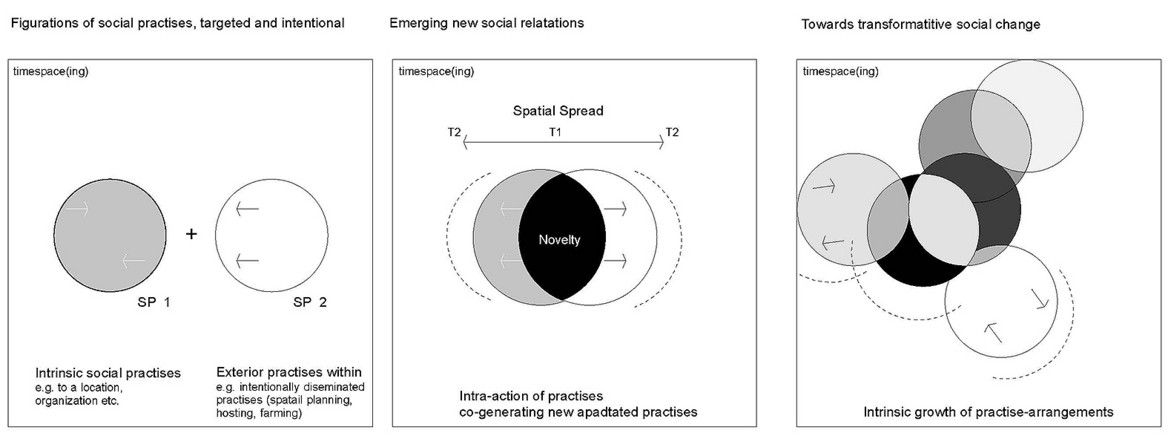Performative Dynamics in Social Innovation and Territorial Transformation
Research department: Economy and Civil Society
IRS Research Topic: Research on Innovation Processes New Social Practices
Funding Organization: European Union
Duration: 10/2017 - 06/2021
There is a growing body of evidence supporting the claim that social innovation can be a trigger for broader territorial transformation. In this context, social innovation is considered as a set of practices and the description of the dynamics by which such practices affect incremental socio-spatial change.
Within this dynamic, new social practices emerge through logical combinations of shared meaning, know-how and materialities, often to better satisfy existing unmet local needs. As these intra-actions occur, new relations between human and more-than-human bodies arise. Of course this process is not straightforward and is fraught with tensions, power geometries and oppositional forces which may restrict the expansion of a social innovation. But, when new practices and relations are accepted, sustained and even eventually institutionalised this, in part, contributes to a process of territorial transformation. This dynamic of expansion (and contraction) within arrangements of social innovation is little attended to within the literature and is the object of Jamie Baxter’s research. Jamie’s doctoral thesis aims to fill this gap by addressing the question: how do constellations of social innovation grow? And what are the dynamics at work within these intra-actions leading to the reconfiguration of boundaries, meanings and relations as practices are performed?
Three rural regions in the U.K., Austria and Portugal frame the study each examining a different case of social innovation in territorial transformation. Rural regions across Europe are beginning to receive more attention as it becomes acknowledged they have been "left behind" in the race for urban economic growth. This perception can be witnessed in both the mainstream media and recent policy and thematic shifts in national foundations and research councils across Europe. In addition then, this study provides insight into the under researched area of the dynamics of social innovation in rural regions. Data is collected in over 40 interviews and through focused ethnographic fieldwork in each region. To address the research questions, Jamie uses a theoretical framework based on Karen Barad’s Agential Realism (2007) read through insights from early work on the social dynamics of innovation by Gabriel Tarde (1898).
The dissertation project is supervised by Prof. Jörg Stollmann (Technical University of Berlin) and Prof. Dr. Gabriela Christmann (IRS; Technical University of Berlin).


